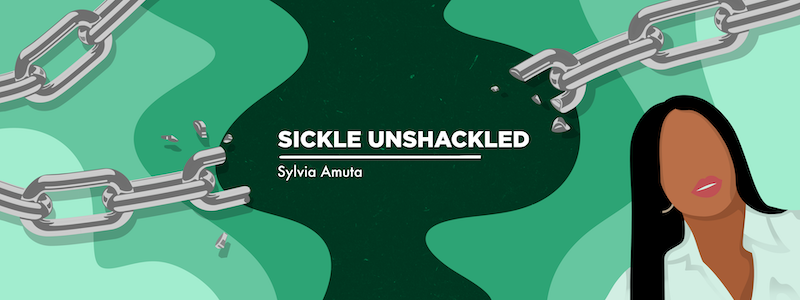An essential truth about caregiving: It’s OK to take a break
Sometimes we need to follow our own advice on burnout
Written by |

If you’re a caregiver, do you ever feel like you always need to be strong? That you should be able to withstand everything life throws your way because someone else is depending on you? We caregivers have a tendency to put our emotions aside or bottle them up and wear a brave face, thinking we can push through anything. But, one day, all that stress will bubble up and explode out, which can leave us feeling broken.
I’ve always tried to give good advice about self-care, especially to fellow caregivers. “Take time for yourself,” I’d often say, “as it’s important to recharge.” Yet, as the saying goes, it’s easier said than done. Even though I gave good advice, I was surprised to find myself in the position of needing to heed it, too.
For years, I’ve relished being a caregiver to my cousin Ada, who has sickle cell disease. I even patted myself on the back, thinking I was doing a good job. After all, Ada was living with me in a stable, loving home, surrounded by people who care about her. Her biological parents were struggling financially, and I knew she’d have a better life with me.
Ada has become like a daughter to me and a sibling to my sons, seamlessly fitting into our family dynamic. I’ve always wanted to make sure she never felt like a burden, and for a long time, I believed I was handling everything perfectly.
The breaking point and lessons learned
But recently, I realized I had greatly underestimated the magnitude of stress and how deeply it can affect every part of your life. A few months ago, my family received shocking and tragic news: My father-in-law, who was so vibrant and full of life, was suddenly diagnosed with a terminal illness. This was a man who seemed to defy age by always being strong and looking younger than his years.
The diagnosis felt like a gut punch, but I did what I always do: I dove in headfirst, taking on responsibility after responsibility. Given my medical background, I shouldered his care while still running my household, working, and managing Ada’s care. I believed I could handle it all.
And I could — until I couldn’t. It got to a point where I felt like my head was going to explode. But, being the “strong” one, I didn’t say anything to anyone. I kept going, convinced that showing any weakness would somehow make me less capable. Then, understandably, I broke down physically and mentally. I became ill, and for the first time, I had to confront the reality that I had taken on too much.
I realized, too late, what it truly means to take on more than you can handle. And here’s the truth I learned the hard way: It’s OK to say no. It’s OK to admit when you’re overwhelmed. It doesn’t make you a bad person or a bad caregiver. In fact, it’s the most honest and self-aware thing you can do.
When you take on too much without allowing yourself time to rest, you’re not just doing yourself harm — you’re also potentially affecting those you care for. Ada relies on me, yes, but that doesn’t mean I can’t rely on others to pick up the slack when I need it.
I had to learn to equip the people around me — whether it’s family, friends, or other caregivers — to step in when I need a break. This was difficult for me, I’ll admit. I’m someone who likes to be in control, who feels the need to manage everything down to the smallest detail. But breaking down forced me to let go. I had to accept that I couldn’t do everything, and that asking for help wasn’t a sign of failure.
After taking some time off to gather myself — to recharge and reflect — I can honestly say it was the best decision I could’ve made. When I came back, I felt like a different person: stronger, more present, less irritable, and more focused. I was able to get back into the swing of things, following up with Ada’s medical appointments and handling any health crises that came up. There was even a recent episode when Ada, despite knowing better, played too much at school and ended up in a sickle cell pain crisis. But this time, I could manage it without feeling like the world was caving in on me.
Being a caregiver is an honor and a responsibility, but it doesn’t mean you have to be superhuman. It’s OK to take a break. It’s OK to prioritize your own well-being so that you can be the best version of yourself when you return. If you’re reading this and feel like you’re at your breaking point, take it from someone who’s been there: It’s time to step back, take a breath, and allow yourself the grace you so freely give to others.
Take care of yourself, caregivers. It’s not just good advice — it’s a lifeline.
Note: Sickle Cell Disease News is strictly a news and information website about the disease. It does not provide medical advice, diagnosis, or treatment. This content is not intended to be a substitute for professional medical advice, diagnosis, or treatment. Always seek the advice of your physician or other qualified health provider with any questions you may have regarding a medical condition. Never disregard professional medical advice or delay in seeking it because of something you have read on this website. The opinions expressed in this column are not those of Sickle Cell Disease News or its parent company, Bionews, and are intended to spark discussion about issues pertaining to sickle cell disease.




Leave a comment
Fill in the required fields to post. Your email address will not be published.